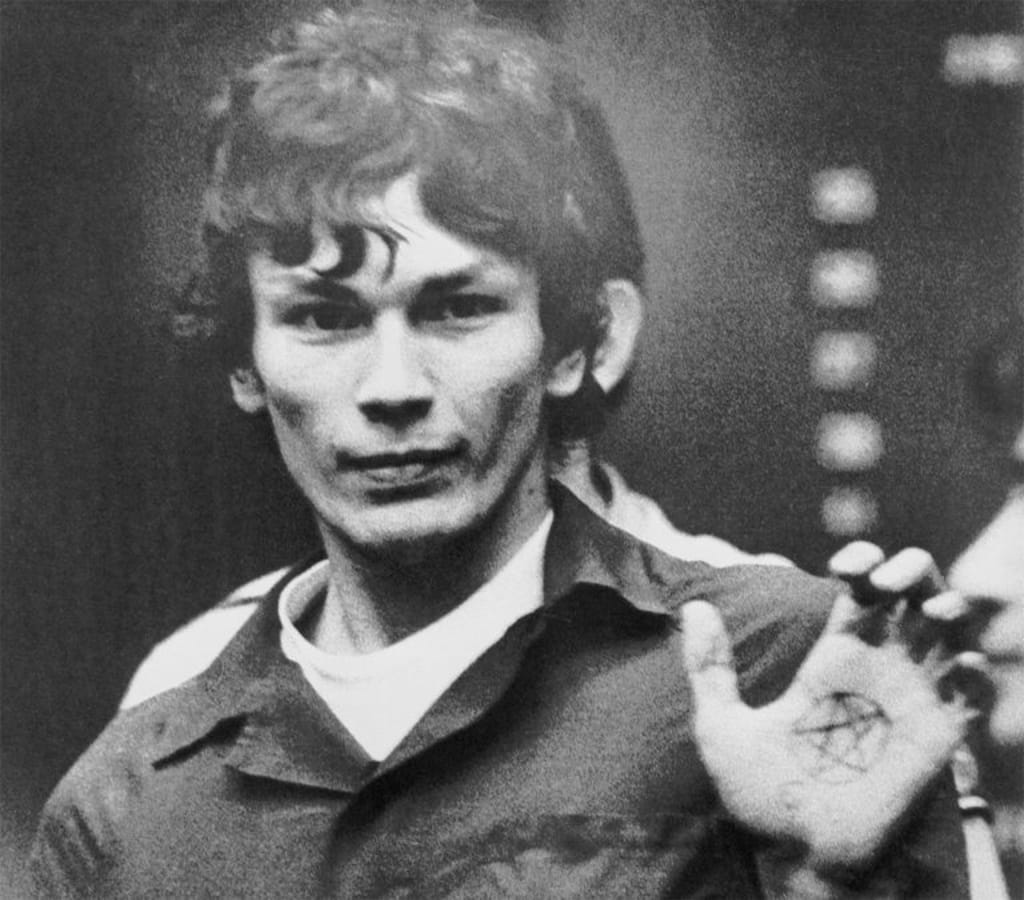Murder Myths: Isolated Cabins and Rural Freaks/We Should Never Listen to Killers
Challenging Myths About Murderers

Let's look at some stereotypes and conventional wisdom regarding murderers. How well do certain claims regarding murderers hold up?
Myth #1: Isolated Cabins and Rural Freaks
It's well established that some people are basically better than others. They're kinder, gentler, more productive and more giving. They seem to bring out the best in others, yet they (apparently) aren't being nice just to look good. In stark contrast are those who are considered evil, deranged, deeply troubled, weird, vain and selfish. Quite often, these types resent those who are better behaved, for their "goody-two-shoes" image and lack of problems.
Over time, stories of deeply flawed and/or evil people amass into collective stereotypes. For example, the case of Burton Wilbur Abbott pairs with the proverbial "Cabin in the Woods"—where dark, violent desires are unleashed upon the innocent, in a secluded location surrounded by wilderness. Certainly, his alleged 1955 murder of 14-year-old Stephanie Bryan adds to our occasional fear of isolated cabins. There could be perversion in the woods, or other terrible fates. It's a safe bet that some of us can’t sleep sometimes due to such cases, and we may even fear going camping. Someone could be out there, right?
It's understandable, but there's cause to be afraid of damn near any location, though. Obviously, big cities are known for their crimes as well. Even more profoundly, it's understood that, when they're not killing people, murderers can seem like nice, decent, hard-working people. In fact, some of them go out of their way to cultivate that image, because it makes them look better (and conceals their dark side). In other words, evil people can lurk anywhere and approach you with a handshake and a smile.
Also, there are obviously plenty of decent people out in the woods. Rural settings don't necessarily turn people into Ed Geins. In fact, if there are certain aspects to small towns which can prevent psychopathic behavior. If people know and respect their neighbors, it'll probably cut down on the possibility of violence. The danger comes in when small towns = isolation, which can sometimes be even worse in a rural area.
In a rural area, not only might you not know your neighbors, but there will be less neighbors for you to possibly know. There may be less chances for positive social interaction in general, especially if your few neighbors do suck, and keep to themselves most of the time. Could this produce anti-social personalities? Most definitely. In fact, there's a classic Violent Femmes song which, in my opinion, does a brilliant job of someone driven to murder through the sheer boredom and depression of isolation.
Myth #2: We should never listen to killers.
“You can be a king or a street sweeper, but everyone dances with the grim reaper.”
— last words of convicted murderer Robert Alton Harris
Those are some creepy last words from Robert Alton Harris, right? Aren't they enough to keep someone up at night? Honestly, I'd say, "Yes and no." Though some say we shouldn't listen to murderers (especially serial killers), those words are interesting regardless of who said them. There's also a truth to them. Death is, in many ways, the great equalizer. Also, in an odd way, the words almost carry more weight coming from a killer on death row.
When looking at quotes from murderers, it pays to understand something: Hearing them out is different from, say, inviting them into your family. Just like with the "Cabin in the Woods" myth, the idea that murderers can only mislead or pollute minds is an oversimplification. In fact, serial killers sometimes probably tell the truth, even about themselves and their own crimes. I've watched a fair amount of serial killer interviews on YouTube, and in every comment section there's always someone discrediting just about everything they say.
It's understandable, but also a bit unreasonable, especially when some of them—like Ed Kemper—seem like open books. While they are capable of manipulation and deceit, they sometimes open up about things, once they realize they'll never be freed again. Also, as the Robert Alton Harris quote suggests, murderers are capable of dabbling in wisdom, and I'll give credit where it's due, even to disreputable characters.
Perhaps a better murderer quote is from serial killer Richard Ramirez, who stated, "Killing is killing, whether done for duty, profit, or fun." It's kind of a hard-hitting truth, isn't it? Sure, it's certainly intended to downplay his own hideous acts, but I honestly have a hard time disagreeing with him. At the end of the day, a killed body is just a killed body, pretty much regardless of the rationale. Even in cases of legitimate self-defense there are trace amounts of ambiguity.
In my opinion, the idea that we can't respect the wise words of a deviant is a way to establish a comfortable barrier. We want to elevate ourselves from the depraved in society. There's us, then there's them. However, as Richard Ramirez reminds us, it's not so simple, as society in general actively encourages depraved and immoral acts. Does this make Richard Ramirez a great moral philosopher? Not in general, but that quote could be considered a great moral perspective. That sentiment is powerful regardless of who said it, but almost carries more weight if we consider where it's coming from.
This is one reason I'm interested in true crime. It's profound to view society in the context of its twisted miscreants. While we shouldn't encourage such behavior, there is a lot to be learned about the world by looking at its darkest corners. While we shouldn't be completely engulfed by its darkness, there is a sort of wisdom in not looking away, in studying life in absolute reality and putting the emotional and depressing aspects of it aside. In other words, we should be a little less emotional about these things and use our intellects more. Grapple with what these people tell us, for they will provide occasional insight. Then, if you need to take a break (as I surely do sometimes), you should definitely take a break.
However, I know I will always come back to this stuff, so long as I'm still alive. I sort of can't help myself.
About the Creator
Wade Wainio
Wade Wainio writes stuff for Show Snob, Undead Walking, Pophorror.com, Vents Magazine and Haunted MTL. He is also an artist, musician and college radio DJ for WMTU 91.9 FM Houghton.






Comments
There are no comments for this story
Be the first to respond and start the conversation.